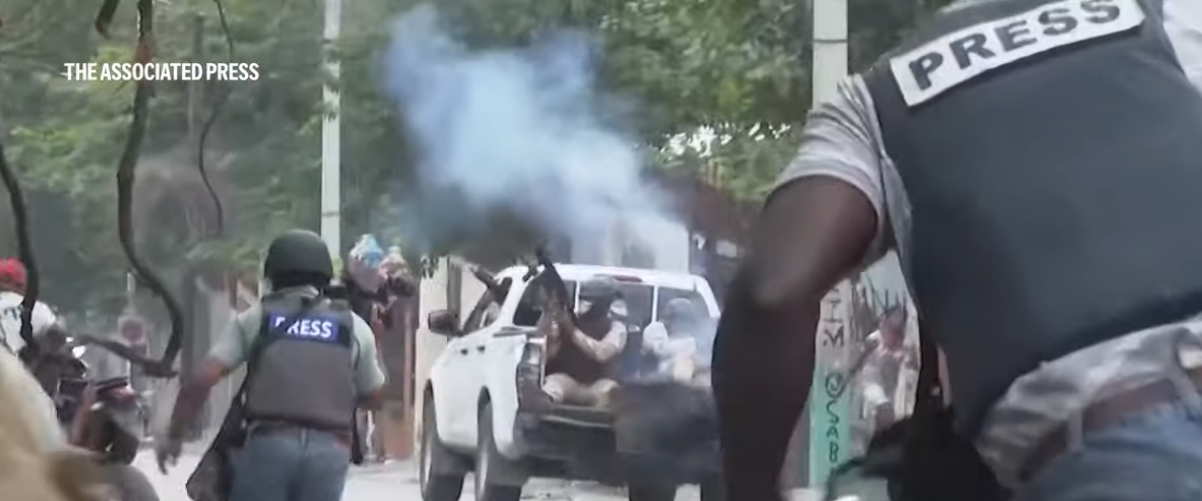Obama–tough decision
[INTERNATIONAL]
If President Barack Obama enters Syria alone he will be branded a war-monger. All of his earlier feats of greatness – ending two wars, national healthcare, saving the economy – will mean nothing. Yet, he cannot remain silent.
Last year, President Obama warned the Syrians that the use of chemical weapons would cross a red-line. However, he was silent as to the consequences. The evidence shows the use of Sarin gas in Syria. Although quite probable, it is not a certainty that Syria’s military conducted the chemical attack on rebels and civilians.
Since America is tired of war, President Obama’s request for a limited airstrike on specific Syrian targets is being met with resistance. An airstrike could instigate a military response leading to further combat, thus involving more American troops. Presidential assurances cannot penetrate the cynicism created by George Bush’s lies about weapons of mass destruction in Iraq.
At home, America’s troubles with violence, poor public schools, immigration, a strained infrastructure, and struggling economy make concerns for Syrian rebels difficult.
Even now, members of America’s military returning from Iraq and Afghanistan with physical and mental injuries scramble awkwardly to find their place within a healing economy.
As Commander-in-Chief, the President has the Constitutional power to deploy troops for up to 60 day as long as he informs Congress. Based on this War Powers Resolution of 1973, President Obama did not need to seek a Congressional vote on a proposed Syrian Resolution allowing airstrikes over 60 days, with no on-the-ground combat. He did so in the name of democracy. He wanted American voices to be heard.
Our allies, Great Britain, France, and Germany oppose military intervention. Even Saudi Arabia, Qatar, and Jordan remain strangely silent. If the Saudis wanted to raise an army against Syria, they could afford to do so. But, Muslim nations appear to be cohesive against the West, in spite of being a possible target of chemical attacks.
President Assad has remained silent, as well. Born on September 11, 1965, Bashar al-Assad was a dentist thrust into the presidency after his brother died. Known as a moderate in a region of dictators, his country succumbed to civil war two years ago when Syrians wanted to vote.
President Obama likens this Syrian situation to Kosovo when world leaders remained silent through ethnic cleansing in Yugoslavia. It could be similar to Rwanda when the world did nothing as Hutus murdered a million Tutsi in 1994.
But, this uneasy silence surrounding Syria’s chemical weapons is most similar to the 13 days of the Cuban Missile Crisis when the world stood on the brink of nuclear war.
In 1962, Fidel Castro, with the assistance of Russia, was building an arsenal of nuclear-type weapons pointed at the United States. As tensions mounted, Soviet Premier Nikita Khrushchev used in-direct, back-channel, communications with President John Kennedy. War was averted, but barely.
Americans fear an airstrike on Syria will not go unanswered. A suicide bomber with chemical weapons is a terrifying prospect. After chemical gas was first used by Germany in World War I, the United Nations banned its use in war.
However, President Saddam Hussein was accused of using chemical gas to kill thousands of Kurds in 1988. Sarin gas was used by Aum Shinriky, a religious cult, in Japan’s subways, in 1995.
The U.N.’s ban against chemical weapons, called the Chemical Weapons Convention, signed by 189 nations, represents a “global norm with zero tolerance for chemical weapons in warfare,” as stated in the U.N.’s report on Syria. But, this agreement only covers nations; not Syrian rebels, the Taliban or al-Qaeda.
Further, the United Nations is being crippled by Russia’s President Vladimir Putin, a Syrian ally, and member of the UN Security Council. Russia has resisted military intervention by the U.N. while over 100,000 Syrians have been killed – with 1,400 dying from chemical gas.
Gloria Allen, a consultant on international disasters, recalls the Holocaust. “As a Jew,” said Allen, “if people had stepped in at the beginning a lot of lives would have been saved.” That is why attacking Syria is worthy of national debate and Presidential attention.
When President Obama speaks on behalf of the Syrian children and American ideals, he is raising the conscience of a world that allowed the tragedies of Kosovo, Rwanda, and the Holocaust. However, the American people have a right to question this request for military action and whether backing Syria’s rebels is a worthy cause.
Although President Obama can act even if Congress votes against a military strike, he cannot carry the whole world on his shoulders or fight this battle, alone.
His legacy was strengthened by breaking the silence around chemical weapons in Syria. Having broken that silence, the President must now listen. In this case, silence is not golden.
Gloria J. Browne-Marshall, an Associate Professor of Constitutional Law at John Jay College in New York City, is author of “Race, Law, and American Society: 1607 to Present,” and a writer covering the U.S. Supreme Court, and major court cases. Twitter: GBrowneMarshall






